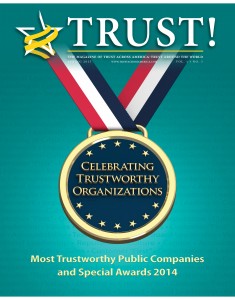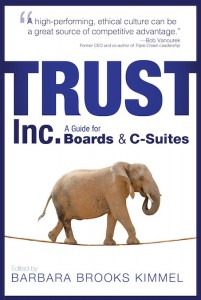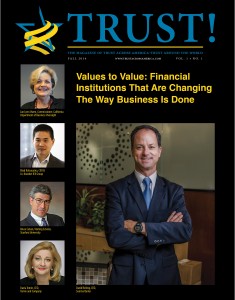Did you know that information overload has lowered our attention span to only eight seconds?
Even “Top 10” lists, a favorite of social media enthusiasts just a few years ago, have now been condensed to “Top 6’s or 5’s” or moved totally away from the written word to short and catchy “feel good” phrases, posters or video sound bytes. Bookstores certainly aren’t thriving, nor are newspapers or magazines. It’s hard to read an article in 8 seconds, let alone a book.
If you want to grab someone’s attention you better be able to do it quickly, or so the PR and marketing folks will tell you. But they just might be wrong, and those “gurus” who choose these “race to the bottom” marketing tactics fuel the chronic low- trust epidemic, instead of playing a much needed role in the solution.
Trust is built in incremental steps and high trust relationships certainly require more than 8 seconds to establish. Short “to do” lists or catchy phrases, just don’t cut it. But ironically, there ARE 6 essential steps we can all take to build the first foundational layer in the “trust construction” process and they CAN be completed in under 8 seconds.
Trash Your Ego: Leave your ego at the door when you meet someone for the first time or attend a meeting. If others think you perceive yourself as better than they are, you might as well not show up at all.
Make Eye Contact: Eye contact is a sign of honesty and reliability. There is a reason why dishonest people are said to have “shifty eyes.”
Shake Like You Mean It: A strong handshake signals confidence in yourself and your abilities, essential components of trust.
Cell Phones be Gone: How often do you check your phone during a meeting? It’s a lack of respect, and more importantly, a clear indication that you are not listening. It takes two to build trust so don’t be distracted.
Smile With Warmth: William Arthur Ward is credited with saying “A warm smile is the universal language of kindness.” And kindness and warmth build trust, as do sincere compliments.
Tell the Truth: Remember, once you lie and get caught, nothing you EVER say will be accepted as the truth.
Gotta run, I’ve gone over the 8 second limit!
Barbara Brooks Kimmel is the Executive Director of Trust Across America-Trust Around the World whose mission is to help organizations build trust, and runs the world’s largest membership program for those interested in the subject. She is also the editor of the award winning TRUST INC. book series and the Executive Editor of TRUST! Magazine. In 2012 Barbara was named “One of 25 Women Changing the World” by Good Business International.
Our annual poster, 52 Weeks of Activities to Increase Organizational Trust is available to those who would like to support our work by making a small donation.
Did you know we have published 3 books in our award-winning TRUST Inc. series. They are yours when you join our Alliance.
Copyright 2015, Next Decade, Inc.









Recent Comments